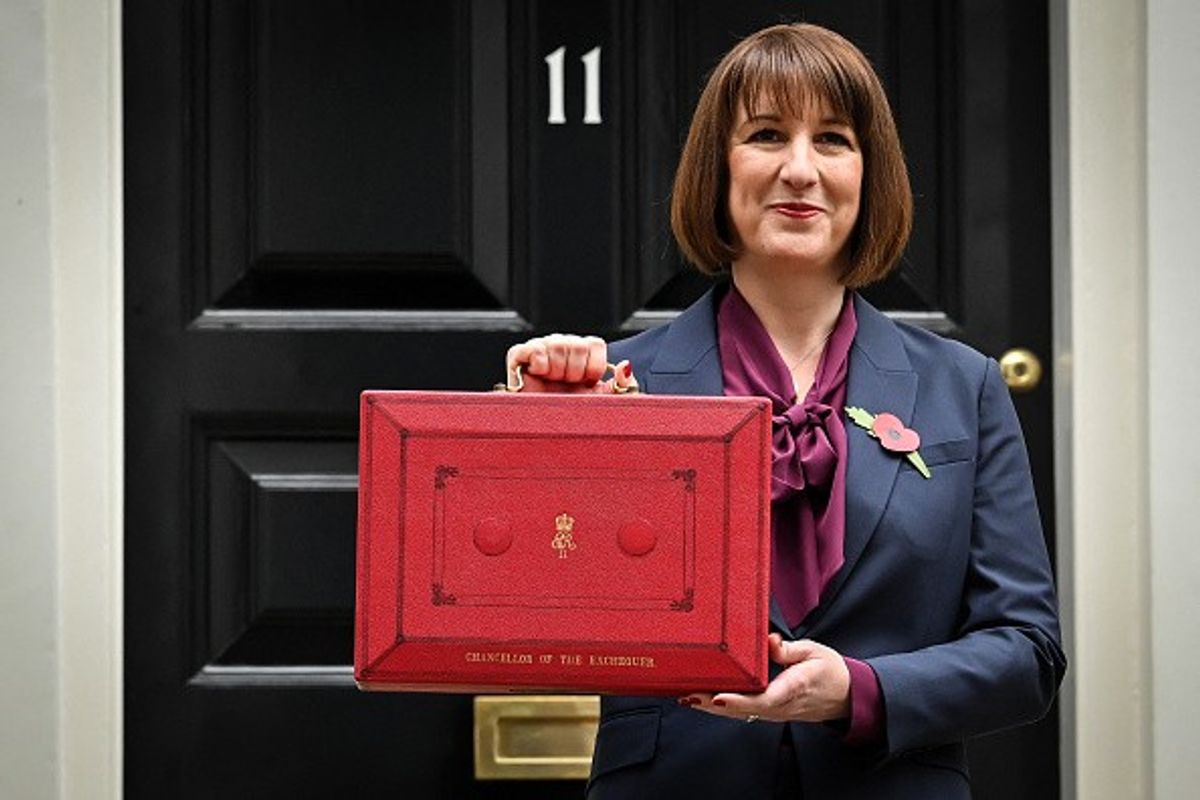Chancellor Rachel Reeves’ 2024 budget lands a harsh blow to small businesses already grappling with weakened consumer spending and razor-thin margins. The bigger-than-expected hike in the National Living Wage, coupled with increased National Insurance Contributions, has left many independent retailers reeling, finds Asian Trader.
For countless small business owners, this budget means making painful decisions like scaling back investments, slashing operating hours, and reducing staff simply to stay afloat, pushing the businesses into survival mode. This budget, touted as the most damaging in recent memory, could force countless high-street shops to shutter, leaving communities without the essential services they’ve come to rely on from their local convenience stores.
Across the UK’s 50,000 convenience stores, the impact will be felt differently. While business rate relief and the increased employment allowance will mitigate costs for smaller independent stores, no help is in sight for chains and larger independent businesses.
Among the key measures announced by Reeves that directly impact local stores are an increase in National Living Wage to £12.21 per hour and increase in National Minimum Wage (18-20 rate) to £10 per hour. The two are collectively expected to cost £513 million extra to the convenience sector next year, according to convenience store body Association of Convenience Stores (ACS).
Additionally, Employers’ National Insurance Contributions will rise by 15 per cent, the threshold for Employers’ National Insurance contributions to fall to £5,000 per year and Employment Allowance to rise to £10,500 a year. The collective cost to the convenience sector next year is estimated by ACS at £397m (increase of £85m).
Strongly condemning the budget, retailers' body British Independent Retailers Association (BIRA) called Reeves’ budget as the “most damaging for independent retailers in recent memory”, with a triple blow of doubled business rates, increased National Insurance, and higher minimum wage costs threatening widespread high street closures.
Andrew Goodacre, CEO of Bira, said that the government's actions show complete disregard for the thousands of hard-working shop owners who form the backbone of our high streets.
"Small retailers, who have already endured years of challenging trading conditions, now face a perfect storm of crippling cost increases. Their business rates will more than double as relief drops from 75% to 40%, while they're hit simultaneously with employer National Insurance rising to 15% and a lower threshold of £5,000, down from £9,100. Add to this the minimum wage increase to £12.21, and many of our members are telling us they simply cannot survive this onslaught.
"One member has already calculated these changes will increase their cost base by £150,000 next year alone," he said.
Goodacre added, "For all the government's rhetoric about supporting small businesses and revitalising high streets, their actions do precisely the opposite. These punishing measures will force many shop owners to make heart-breaking decisions about their businesses' future.
"What makes this particularly bitter is that these are family businesses, often built up over generations, run by people who work incredibly long hours to serve their communities. They're now being asked to shoulder an impossible burden while trying to compete with online giants who face none of these cost pressures."
Back breaking burden
Echoing BIRA's opinion, retailer Fiona Malone expressed her unhappiness and concern with Asian Trader, saying "Budget was kind of disappointing.
"We've worked it all out, including the minimum wage going up and the National Insurance contributions. It's probably going to cost us about £23,000 extra a year. And that is obviously concerning when margins are getting tighter and tighter each day.”
Vince and Fiona Malone run Tenby Stores and Post Office in a coastal town in South West Wales. The last bank in the town (HSBC) closed in August, leaving this coastal town residents (5,500 residents in winter and close to 65,000 in summer) completely dependent on their post office for banking needs.

She said, “We are the only bank in town and one of the few convenience shops and we feel that the government aren't recognizing what valuable service we offer to the community.
"All banks have left town and we're picking up the slack, but we're not getting any support from the government. We don't expect to make millions but we are able to make sure we can pay all of our bills and make sure that we're making a profit. And at the moment it's looking kind of quite bleak for us and for many small businesses.”
The Malone couple was planning to invest some amount to revamp their store. However, the couple has now halted their investment plan, she said, as it feels it is “not going to be worth it” and there is a sense of uncertainty.
"I can probably easily get a job in the private sector and work Monday to Friday. We don't do that because we really enjoy working in our community and we love what we do. Unless there's some relief coming, it's just not going to be viable for lots of businesses to survive,” she added.
Echoing Fiona's concern, retailer Mo Razzaq, also the National President of the Federation of Independent Retailers (the Fed), said, “As responsible employers we want to ensure we are paying a fair wage to our staff. But a bigger than expected rise to the national living wage to £12.21 an hour from April 2025 is a step too far for hard-pressed small businesses.
“As well as paying our staff more in wages, we must pay more in national insurance and pension costs, at a time when many of our other costs, including energy costs, are rising. There is no easy way for small retailers to combat these increases. As so many of the products that convenience store owners are price marked, we cannot pass these costs onto our customers.
“The only solution available to independent shop owners is to reduce staff hours and staff numbers and, somehow, take on even more hours ourselves.”
Clearly, the budget has hit retailers hard, with the odds now stacked firmly against growth and investment in the short term. These new costs also risk increasing the prices customers pay at the till.
As retailers are bracing for the impact of new costs in 2025, improvements to the business rates system will not come until 2026.
In the words of Helen Dickinson, Chief Executive of the BRC, said, there remains many unanswered questions about the new charges and discounts that will be levied from 2026.
“With retailers paying over 21 per cent of all business rates in the economy, the solution is not to simply shift the burden around the industry, but to look outside retail. Without action to address the disproportionate impact of business rates on retail, the Government’s plan is simply robbing Peter to pay Paul.”
Crackdown on crime
Cracking down on the crippling shoplifting epidemic, Reeves said in her budget speech that the government will scrap the existing threshold that deems stolen goods under £200 as “low value", thereby reversing an act introduced in 2014 that means a person charged with stealing goods worth less than that sum faces less serious punishment.
Reeves also vowed to boost training for police officers and retailers to tackle retail crime.
“I am providing additional funding to crack down on the organized gangs which target retailers and to provide more training to our police officers and retailers to top shoplifting in its tracks,” she said.

Reeves’ acknowledgment of the shoplifting crippling retail and removal of threshold value is being widely welcomed by retailers though calls are being raised to introduce some concrete actions.
Fiona, whose store has been no outlier in wave of crime, said, “I welcome the shoplifting measures but again, there are lots of talk about it, but still no practical steps taken yet.
"Currently, we have five open shoplifting cases (including a violent one) and we're still waiting for outcome from the local police, still chasing them for the resolution and closure."
Summing the convenience retailers’ sentiment, ACS Chief Executive James Lowman said, “The Chancellor’s commitment to tackling shop theft will be warmly welcomed by our members, but they are interested only in action and in crime against their stores and their colleagues being tackled effectively.”
Please listen
Putting duty up by 10 per cent on hand rolling tobacco, a flat rate duty on all vaping liquids, a one-off increase in tobacco duty and increases on alcohol duty rates on non-draught products in line with RPI are some of the additional measures announced by the Chancellor in the Budget speech.
However, some of these measures are expected to backfire.
Razzaq said, “When tobacco prices rise, more smokers are lured to the illicit market which damages the business of legitimate retailers and damages communities. The government needs to do more to tackle the illicit market to better protect the livelihoods of members who legitimately sell tobacco.”
Convenience retailers continue to serve as the lifeline in communities and have proven to be a blessing during testing times like Covid-19 lockdown. However, they continue to be unsupported, and many are now struggling to survive.
Razzaq said, “Small businesses play a vital contribution to their communities and to the economy, but with the cost of doing business soaring, many Fed members are struggling to stay in business. It is crucial that they are supported, so going forward, the government must put our concerns and our issues at the top of its agenda.”
Calling the budget "anti-high street" Goodacre stated that the government is seemingly happy for working people to shop online and buy cheap imports, adding "this government has shown complete disregard for the local businesses that create jobs and maintain vibrant communities."
Voicing the concern of convenience channel, Fiona said, “Tescos and Sainsbury’s can survive no matter what gets thrown at them. But they don't provide the level of service that a store like ours do.
“I am very unhappy and concerned after the budget announcements. I am concerned how badly it is going to impact the small businesses and then how are the local communities going to cope, if some of them close down or reduce operation? Because if things get even tighter, I can just see a lot of businesses contracting their hours to cut down their costs.
"Unless there's some relief coming, it's just not going to be viable for lots of businesses to survive. I hope someone in the government listens to us and tries to understand our problems as well as support us, recognising our true value.”
Clearly, without immediate relief, the government risks undermining the heartbeat of local communities, leaving independent retailers as well as the essential services they provide on the brink of collapse.


